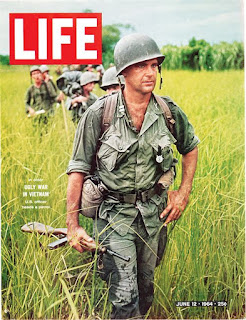
Last night, in Michigan's winter darkness, I was making a lonely drive home from Ann Arbor.
My only passenger was a shopping bag of Christmas presents for my children, who would be making their way home over the next few weeks. Home to me.
With a hundred miles to go, my Apple playlist was interrupted by a Bluetooth announcement - a call from Gainesville; from a too-far-away college campus. From my youngest son.
It seems like only yesterday he was buckled into his car-seat behind me. There was no Apple playlist in that car - just James and the Giant Peach, sweetly singing James, James, James, how are you...isn't it a lovely day?
And in those days, I'd usually drive one-handed; twisting my arm behind me so that the beautiful boy could hold onto my finger while we drove.
But I must have been driving Einstein fast; warping away the years and morphing our minivan into a fancy SUV. Because it seemed like one minute my passenger had his tiny fingers wrapped around mine and the next thing I knew he was talking to me about anthropology.
"Dad, have you ever looked into a virtual reality display? Once you do, your beliefs about the universe might change. You'll understand how easy it would be to create a virtual life - a holographic version of reality."
This from the same passenger who I just saw sitting in his car-seat, wispy blonde hair gently blowing in the open-window wind. From the same blue-eyed child whose most expressive act was to just smile, showing two tiny little top teeth.
But in those days - that was enough. In fact, it was everything.
"You mean like those big headset things?" I asked, being the hip dad I am.
"Yes, we have them at school. The textures and detail are so real, you would start to question just how real our lives might be. It's like life as a video game."
At 75 miles left, we began talking about music and poetry. The alluring constellations of music and pathos and metaphors. I told him that I could listen to Tupac for hours and hours; how I would become mesmerized and drawn by his lyrical sadness:
Nobody cries when we die
We outlaws
Let me ride
Until I get free...
Oh, Tupac.
I confessed that it was scary that I could feel such empathy - and even an odd longing - for a place of gangsters and violence and death - a world I could never understand; a world turned hologram by music and art and poetry.
"Dad, don't you see? That's what I've been trying to tell you; that just because they speak of suicide and drugs and death, it doesn't advocate it - it's just part of the art form."

Now, I do see. It's a VR place.
Perhaps the evocative pigment of Monet's Haystacks will one day be compared with paintings of our current reality, where colors are words:
"I got pennies for my thoughts, now I'm rich
See the twenty's spinning looking mean on the six
wearing flags, 'cause the colors match they clothes
They get caught in the wrong hood and get filled up with holes"
At 50 miles, we spoke of the city, the snow and being together for Christmas.
There, somewhere along the dark and cold shores of lake Michigan, he said, "Dad, I'm counting the days to be home with you." Me too.
Oddly, I don't remember feeling that same way about coming home from school.
And honestly, I don't remember the same kind of personal experience with my own father. From him, I'd learn how things were supposed to be. Sometimes, he'd show me what things could be. I'd watch him paint. Or play the piano. Interact with the world.
But he'd rarely ask me what was inside my head; how I felt about the world.
And with this youngest child, I think I've found that being a father isn't just about being a role model. It isn't just about showing your son what it means to be a good person. It's also about opening his mind wide to a sense of wonder, then questioning and challenging and pushing him into the void of infinite knowledge.
My father was talented, kind and generous. He helped me learn how to be a good person. But I'm just discovering that there are things he didn't do - couldn't do. Insights that I wish I'd been taught - and what I'm just learning now. Maybe they were too Yogi for my Victorian father.
I'm learning from that kid in the back seat. That a mix of the intellectual and the mystical - the lyrical and the musical - is what gives life to the world. And it melts the barriers of our worldview to see and explore a different, infinite galaxy.
At 25 miles to go, our call was almost over. My virtual passenger was going to the gym.
My favorite passenger. The one who always showed us his two top teeth.
Now, with so much more to say, he needed to let go of my finger.
And I can still hear "James, James, isn't it a lovely day?" when he disconnects.
Yep, it is.



























